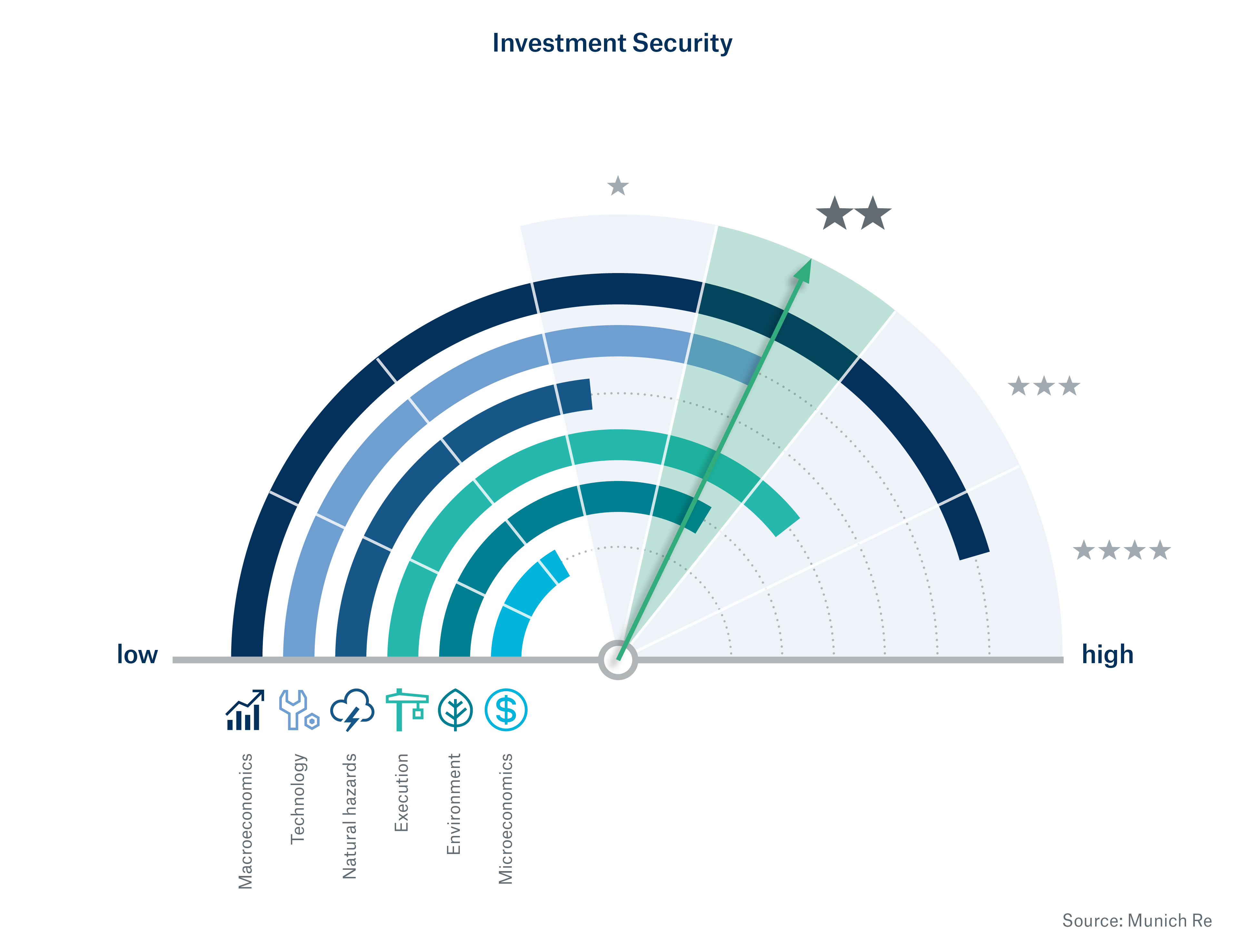
Infrastructure Risk Profiler
Our competence, your confidence.
properties.trackTitle
properties.trackSubtitle
Discover Infrastructure Risk Profiler
Infrastructure Risk Profiler (IRP) is a service that enables our clients to quickly and cost-effectively identify opportunities that match their individual appetite for risk. They do so secure in the knowledge that IRP’s extensive, high-quality analysis covers all factors pertinent to infrastructure projects, individually and holistically. This makes different infrastructure projects transparent and easy to compare.
Proper analysis of risks typically associated with infrastructure requires comprehensive expertise drawn from diverse fields. This is complicated by the fact that different areas of infrastructure investment risk impact one another and this, in turn, necessitates an understanding of the overall risk – which might be greater than the sum of the parts. Furthermore, each infrastructure project incorporates different risk allocations, which means that a broad range of expertise is needed.
The net result is a report that provides investors with all information needed to arrive at objective, reliable and well-founded business decisions. Complex infrastructure projects can now be assessed quickly and clearly, which enables investors to better secure a return on their investments. Completion of the thorough analysis within up to 4 weeks also saves time and money, all of which adds up to greater investor confidence.

Let’s break the risks down
Macroeconomics
We consider the impact of current and projected political, operational, legal, tax, economic and security risks on infrastructure investments.
Technology
The engineering risk is considered, as is the application of technology and engineering in the construction process and the operational phase.
Natural hazards
Should tectonics, storms, flooding, extreme temperatures or other natural hazards pose a threat, these are carefully evaluated and factored in.
Execution
Creation of infrastructure might be affected by project setting, construction and operational management, changing costs and the ability to meet performance benchmarks.
Environment
Returns could be impacted by the ability to obtain environmental permits, emissions regulation or possible adverse effects of the project on the environment.
Microeconomics
Reliability of business plans, changes to design or schedules that affect costs, shift of facility-management, maintenance costs over life cycle.
See the benefits
Take a look at how IRP can help improve the performance of your infrastructure investment portfolio.
- We provide holistic expertise under one roof, so that interrelated risk factors can be evaluated and weighted.
- A standardised and transparent assessment enables you to make an informed decision.
- Access to highly qualified experts allows fast assessment for any type of infrastructure.
- Decisions can be taken faster because key risks are clearly described, and customers receive a detailed report and a presentation by experts.
- IRP provides a transparent risk landscape easy to compare with your risk appetite.
- Financial benefits include the ability to optimise safety features, identify risks at an early stage, model alternative scenarios and finally decide on your terms.

